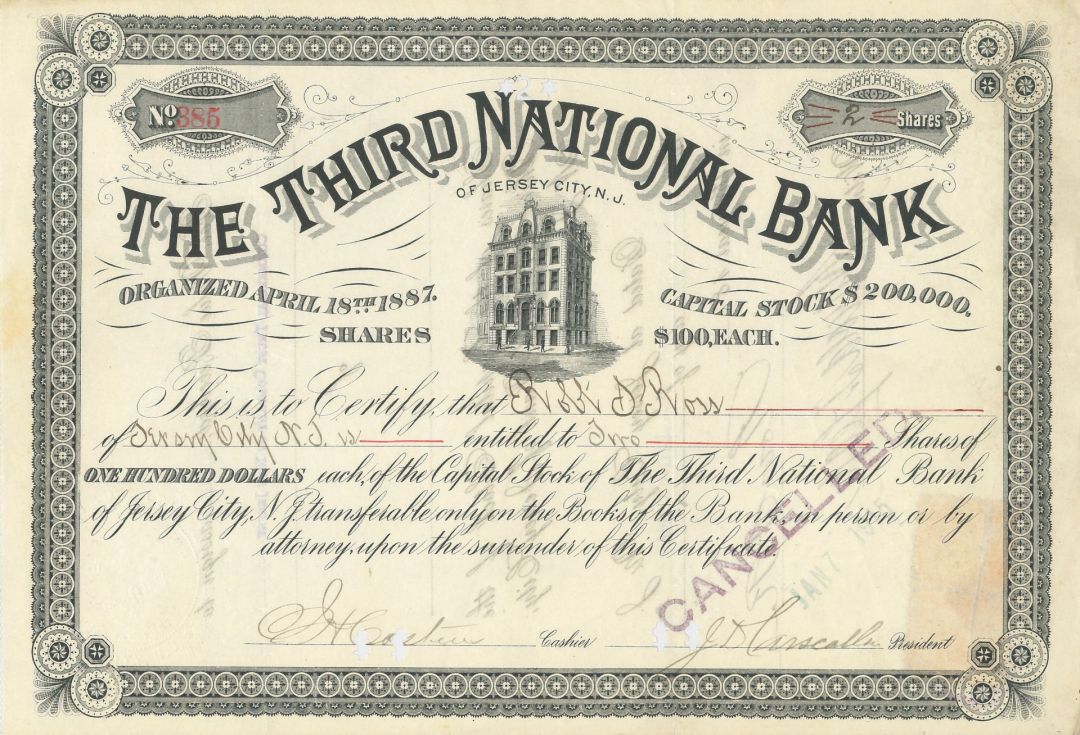 Third National Bank of Jersey City, New Jersey - 1910's dated Banking Stock Certificate
Third National Bank of Jersey City, New Jersey - 1910's dated Banking Stock Certificate
Inv# BK1036
Stock
Stock with several rubber stamp cancellations, still nice. Scarce! Jersey City was a dock and manufacturing town for much of the 19th and 20th centuries. Much like New York City, Jersey City has always been a destination for new immigrants to the United States. In its heyday before World War II, German, Irish, and Italian immigrants found work at Colgate, Chloro or Dixon Ticonderoga. In 1908, the first permanent disinfection system for drinking water in the U.S. was installed on the water supply for the city by John L. Leal. The Hudson Tubes opened in 1911, allowing passengers to take the train to Manhattan as an alternative to the extensive ferry system. The Black Tom explosion occurred on July 30, 1916, as an act of sabotage on American ammunition supplies by German agents to prevent the materials from being used by the Allies in World War I.
From 1917 to 1947, Jersey City was governed by Mayor Frank Hague. Originally elected as a candidate supporting reform in governance, the Jersey City History website says his name is "synonymous with the early twentieth century urban American blend of political favoritism and social welfare known as bossism". Hague ran the city with an iron fist while, at the same time, molding governors, United States senators, and judges to his whims. Boss Hague was known to be loud and vulgar, but dressed in a stylish manner, earning him the nickname "King Hanky-Panky". In his later years in office, Hague would often dismiss his enemies as "reds" or "commies". Hague lived like a millionaire, despite having an annual salary that never exceeded $8,500. He was able to maintain a fourteen-room duplex apartment in Jersey City, a suite at the Plaza Hotel in Manhattan, and a palatial summer home in the seaside community of Deal, and travel to Europe yearly in the royal suites of the best ocean liners. Read more at https://en.wikipedia.org/wiki/Jersey_City,_New_Jersey
A stock certificate is issued by businesses, usually companies. A stock is part of the permanent finance of a business. Normally, they are never repaid, and the investor can recover his/her money only by selling to another investor. Most stocks, or also called shares, earn dividends, at the business's discretion, depending on how well it has traded. A stockholder or shareholder is a part-owner of the business that issued the stock certificates.










Ebay ID: labarre_galleries